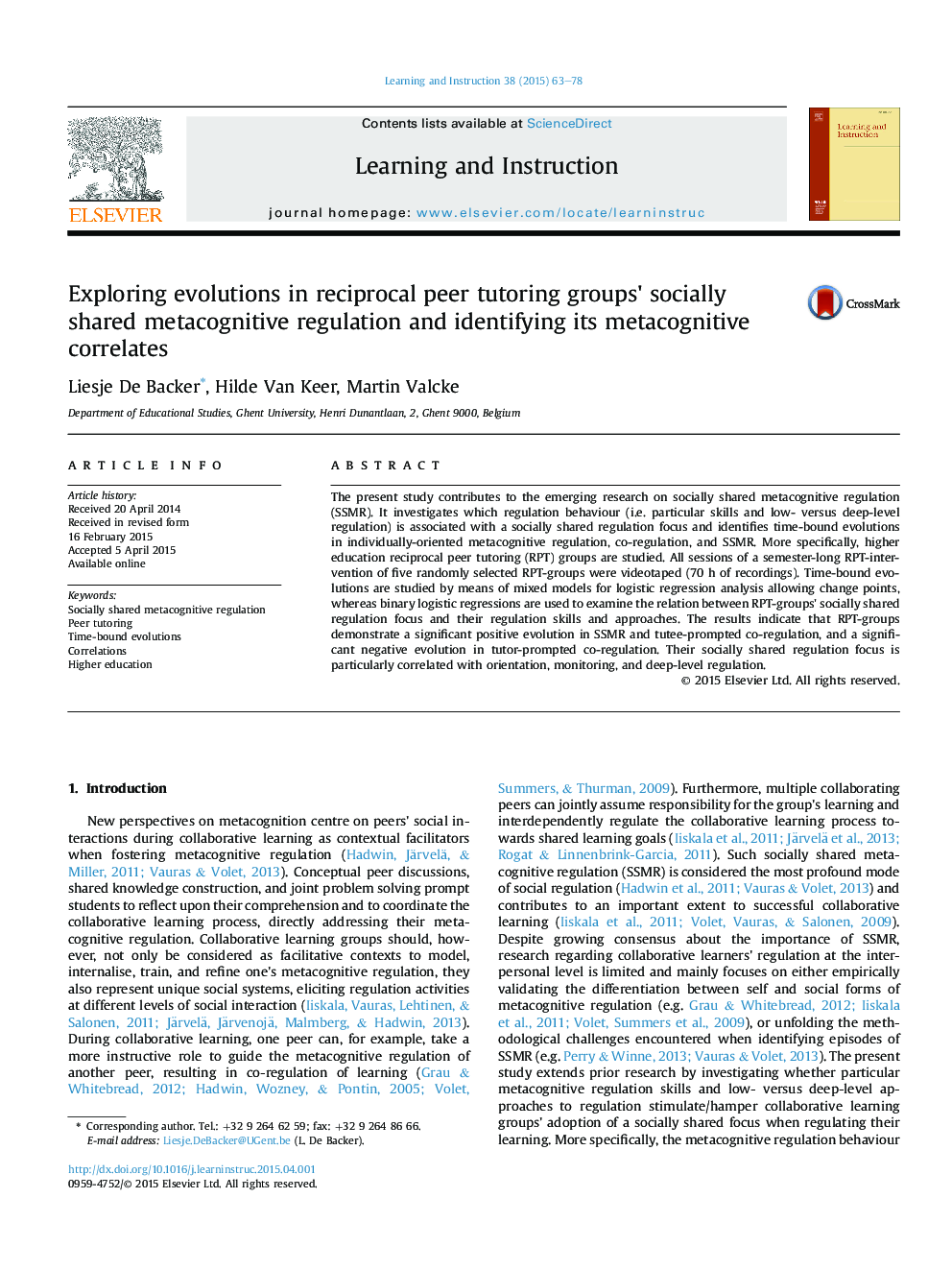| Article ID | Journal | Published Year | Pages | File Type |
|---|---|---|---|---|
| 6845818 | Learning and Instruction | 2015 | 16 Pages |
Abstract
The present study contributes to the emerging research on socially shared metacognitive regulation (SSMR). It investigates which regulation behaviour (i.e. particular skills and low- versus deep-level regulation) is associated with a socially shared regulation focus and identifies time-bound evolutions in individually-oriented metacognitive regulation, co-regulation, and SSMR. More specifically, higher education reciprocal peer tutoring (RPT) groups are studied. All sessions of a semester-long RPT-intervention of five randomly selected RPT-groups were videotaped (70Â h of recordings). Time-bound evolutions are studied by means of mixed models for logistic regression analysis allowing change points, whereas binary logistic regressions are used to examine the relation between RPT-groups' socially shared regulation focus and their regulation skills and approaches. The results indicate that RPT-groups demonstrate a significant positive evolution in SSMR and tutee-prompted co-regulation, and a significant negative evolution in tutor-prompted co-regulation. Their socially shared regulation focus is particularly correlated with orientation, monitoring, and deep-level regulation.
Related Topics
Social Sciences and Humanities
Psychology
Developmental and Educational Psychology
Authors
Liesje De Backer, Hilde Van Keer, Martin Valcke,
